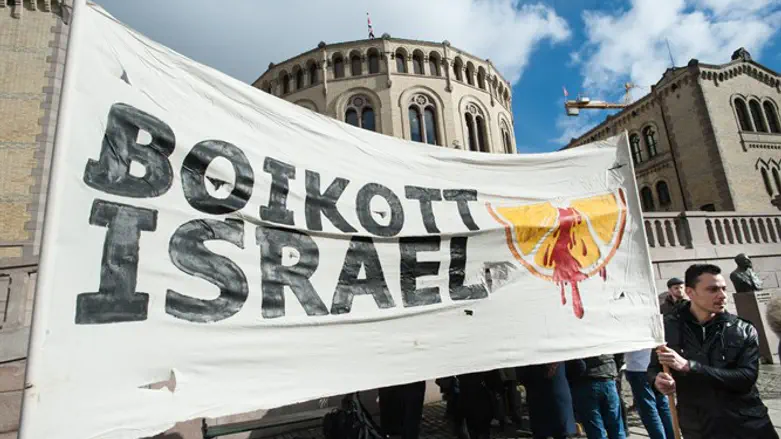
The Friends of Simon Wiesenthal Center for Holocaust Studies (FSWC) on Tuesday sent a letter to Norway’s Ambassador to Canada in which it expressed concern over a Norwegian lawmaker’s nomination of the Boycott, Divestment and Sanctions (BDS) movement for a Nobel Peace Prize.
“Over the weekend it was disturbing to see reports that Norwegian MP Bjornar Moxnes nominated the Boycott, Divestment and Sanctions (BDS) movement against Israel for a Nobel Peace Prize. It is important to understand that this movement, at its core, is anti-Semitic and is indeed an impediment to peace,” wrote FSWC President and CEO Avi Benlolo to the ambassador, Anne Kari Hansen Ovind.
“Boycott campaigns singling out Israel are inherently anti-Semitic and discriminatory by focusing only on goods produced by Jewish-owned companies while negatively impacting the empowerment of local residents, including Palestinians, regardless of their ethnic or religious backgrounds,” Benlolo pointed out. “According to the International Holocaust Remembrance Alliance, of which both Norway and Canada are members, this double standard applied to Israel is a form of anti-Semitism.”
“As the Canadian Government condemned the BDS movement through a parliamentary motion in 2016, it is important that Norwegian officials strongly condemn Mr. Moxnes’ actions, and recognize that the BDS movement for what it is, a hateful and anti-Semitic movement used as a tool to attempt to delegitimize the Jewish State of Israel,” he concluded.
Moxnes last week defended his nomination and denied in an interview with the Middle East Eye website that the BDS movement is anti-Semitic.
“The BDS movement is a legitimate, peaceful, non-violent movement trying to push the Israeli government to abide by international law, and trying to struggle for a peaceful solution in Palestine and in the Middle East,” Moxnes said.
Last month, the Israeli government published a list of anti-Israel organizations whose activists will not be allowed to enter Israel as part of its continuing fight against the BDS movement.
The movement responded angrily, branding Israel’s decision as “yet another desperate, fanatic attempt by Israel's far-right government to silence its critics and counter the impressive growth of the nonviolent BDS movement for Palestinian rights around the world.”
The BDS movement also claimed that the Israeli ban “follows the script of South Africa's apartheid regime: it is an anti-democratic, exclusionary and a desperate continuation of Israel's propaganda and legal warfare against the BDS movement.”
BDS has notably also been targeted by dozens of U.S. states which have passed legislation against the movement.
States to have approved anti-BDS legislation include New York, California, New Jersey, Indiana, Florida, Tennessee, Michigan, Montana and Virginia.
